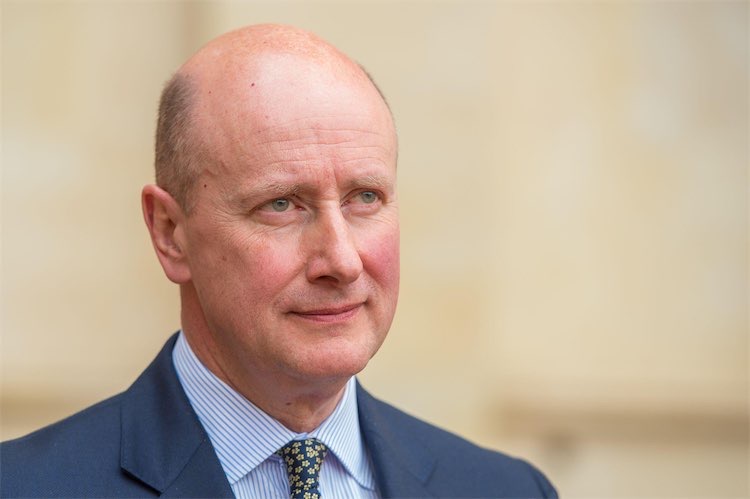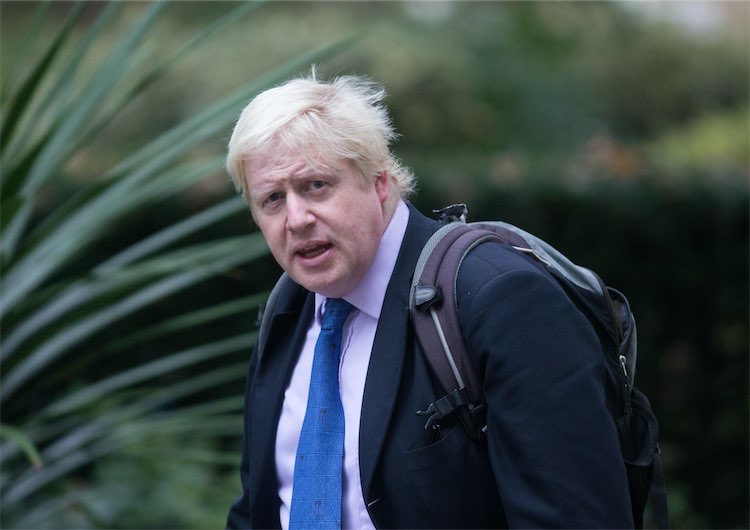Experts Say Sunak Is Struggling To Appoint An Ethics Adviser Because Boris Johnson “Poisoned The Well”
8 min read
When Rishi Sunak entered Downing Street as Britain’s third Prime Minister in as many months back in October he promised a government of “integrity, professionalism and accountability at every level”.
But with one senior minister having resigned over allegations over their behaviour, another under investigation and a cloud still hanging over a third, he is struggling to make good on his word.
It is not helped by the fact that during the campaign to replace Boris Johnson as Tory leader earlier in the summer, Sunak promised that filling the vacant position of Independent Adviser on Ministers’ Interests, effectively a PM’s ethics chief, would be one of his first acts as PM.
But exactly a month on we are no further along in finding out who will be the permanent ethics adviser, while in the meantime Sunak has been forced to hire a temporary investigator – the respected KC Adam Tolley – to look into various allegations made against the Justice Secretary and Deputy Prime Minister Dominic Raab.
They began to be reported just days after Gavin Williamson stood down as minister without portfolio after accusations of bullying, while there remain calls for further investigation as to whether Home Secretary Suella Braverman ignored legal warnings amid the crisis at Manston migrant processing centre last month and the circumstances around her previous sacking.
The adviser role is vacant because the previous holder of the role, Lord Christopher Geidt, resigned under a cloud in June amid a disagreement with Johnson, who it was felt had fatally undermined his credibility during the drawn-out saga of who paid to redecorate his Downing Street flat.
He was the second adviser on ministerial interests to quit on Johnson’s watch, after the respected senior civil servant Sir Alex Allan stood down after nine years in the role when his findings that the then-Home Secretary Priti Patel’s actions "amounted to behaviour that can be described as bullying" towards officials, were ignored.
Downing Street has repeatedly said that a process to find a new adviser is ongoing, but constitutional experts have speculated that Sunak may struggle to appoint someone without a significant expansion of the role’s powers, to avoid whoever takes on the role finding themselves in the same “invidious” position as the two previous holders.
A senior Conservative MP admitted “there's a bit of poison in the well” after the end of Geidt’s tenure, which saw the former private secretary to the Queen initially say he left over steel tariffs, before clarifying that he "could not be party to advising on potential law breaking” after Johnson's response to his fine for breaking Covid-19 rules in the so-called “partygate” saga.
Robert Hazell, a professor at the Constitution Unit at University College London, told PoliticsHome the government is in “a weak position” after what has happened to the two previous post holders, while those approached for it are in a strong position to ask for more powers such as those set out in a report by the independent Committee on Standards in Public Life last year, including the ability to initiate their own investigations rather than wait to be instructed by the PM, adding that Sunak is likely to relent.
“I don't think it will be enough for Sunak to say, ‘Look, I'm different from Boris and I'm not going to undermine your role and so you will understand I can't agree with your initiation of inquires, but I promise you if anything blows up I would of course allow you to investigate.’
“I mean, if I were on the other end of that conversation I would say ‘Sorry but I'm afraid that's not good enough’”.
 Lord Geidt
Lord Geidt
“I think it'd be very difficult for someone to do it as it's currently constituted, because the last couple of years have been so many suggestions for how this role could be improved, everyone’s identified the weaknesses in it,” Tim Durrant, Associate Director at the Institute for Government, said.
If someone does take it on without having secured some changes there's “kind of consensus around that I think they would struggle to be taken seriously”, he added.
Durrant told PoliticsHome “the system has become kind of degraded over the last couple of years,” adding the previously vaunted but more recently derided “good chaps” system of governing doesn't work, and needs stronger regulatory framework.
“After the Raab stuff, there'll be other allegations - and there will be need to be a person who is properly tasked with investigating those matters, rather than having ad hoc people to do it”, he added.
Robert Barrington, Professor of Anti-Corruption Practice at the University of Sussex, said in recent years we have had “ethical crisis after ethical crisis”, adding it wouldn’t surprise him if people have been offered it and turned it down, saying “it's an invidious position”.
He told PoliticsHome: “You find yourself having to trust that the Prime Minister is going to follow your advice, and if the Prime Minister doesn't follow your advice, you have to resign, there's not much else you can do.
“So you think we have to assume that they're finding it difficult to fill the post, and whoever takes the post, needs to take it with conditions that it is going to be given more teeth.”
Barrington said the system itself needs to be “revamped”, with a mechanism to make sure the PM does follow the advice, adding: “You can't have a situation where an ethics adviser comes in, the Prime Minister ignores the advice, the ethics adviser resigns, and that happens time and time again.”
The experts all agreed that Sunak is paying the price for the way Johnson undermined the role when he was PM, with Steve Goodrich, Head of Investigations at Transparency International UK, adding: “I can understand why no competent person wants to take up the role a the moment, there's very little powers or actual independence for the adviser to carry out their duties effectively.
“And while while the terms of reference might have worked in yesteryear, when ministers would resign without prompting for what may seem now relatively trivial issues, there have been recent experiences where the Prime Minister is willing to give ministers confidence in their position despite flagrant breaches of the rules and quite egregious ones too.
 “So there really needs to be something to show that this isn't just another Whitehall paper tiger, and that it’s a position that has both teeth and independence to be able to do its job effectively.”
“So there really needs to be something to show that this isn't just another Whitehall paper tiger, and that it’s a position that has both teeth and independence to be able to do its job effectively.”
As well as the powers to initiate investigations several think tanks and pressure groups have called on the PM to make a commitment to putting the position on a statutory footing, removing the perception the role and its work are in the gift of whoever is in No 10.
But a source close to the process pushed back against that idea, saying any change that removes the PM’s power to hire and fire who they employ as ministers would be too big a shift.
They told PoliticsHome: “Usually what happens with those statutory ethics bodies is they run into some fairly hefty constitutional problems, because if you make a point of ministerial appointments being subject to statutory control, they then become justiciable.
“And that means that the Prime Minister of the day can't hire and fire his or her ministers as they want, and you might think that's a good or a bad thing, but it is a major constitutional departure.’
Labour disagree, and have put forward a plan to create an independent ‘Integrity and Ethics Commission’ if they got into power, which would have powers to launch investigations without ministerial approval, as well collect evidence and decide sanctions.
Fleur Anderson, Shadow Paymaster General, said after a month in No 10 Sunak has “failed to keep his promise” to appoint Geidt’s successor, adding: “Filling this vacancy is the absolute bare minimum we could expect from this Prime Minister, but he’s failed to do even that, let alone come forward with any plan to fix the standards system eroded and degraded by a decade of Tory Government.”
Pointing to the fact Johnson at the end of his tenure altered the ministerial code, Anderson said it was “little wonder” why potential applicants “have thought twice about taking on his poisoned chalice”.
Asked for an update on the appointment process the Cabinet Office did not have one, other than simply restating that the PM has committed to hiring someone, and “this process is ongoing”.
Meanwhile, the Lib Dems have tabled legislation which would give Parliament the power to bypass government and appoint an Independent Adviser on Ministerial Interests themselves.
The party’s Cabinet Office spokesperson Christine Jardine told PoliticsHome: “Rather than govern with ‘integrity' Rishi Sunak started by appointing controversial figures like Gavin Williamson and Suella Braverman - while leaving the vital post of Ethics Adviser vacant.
“If Sunak won’t appoint an Ethics Adviser, Parliament must force his hand.”
